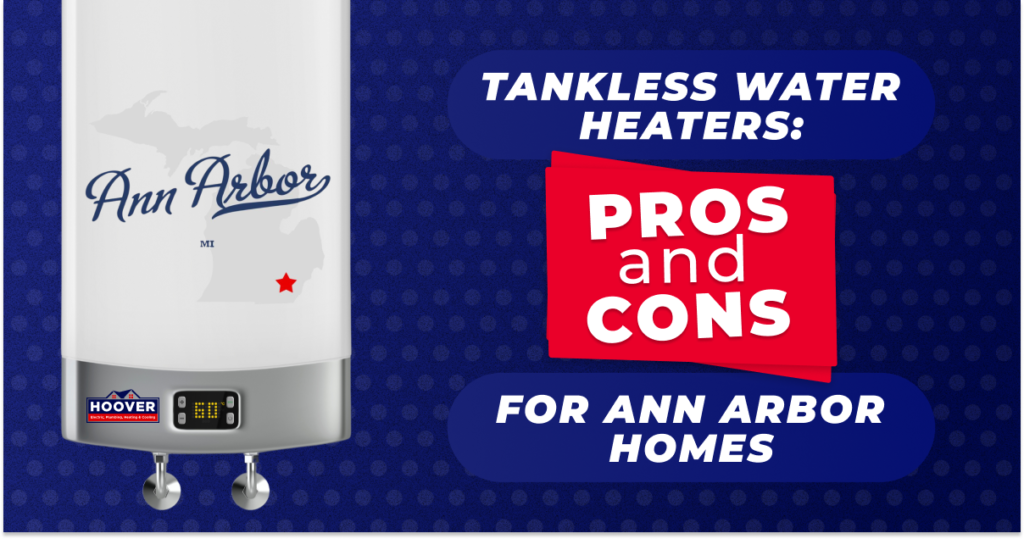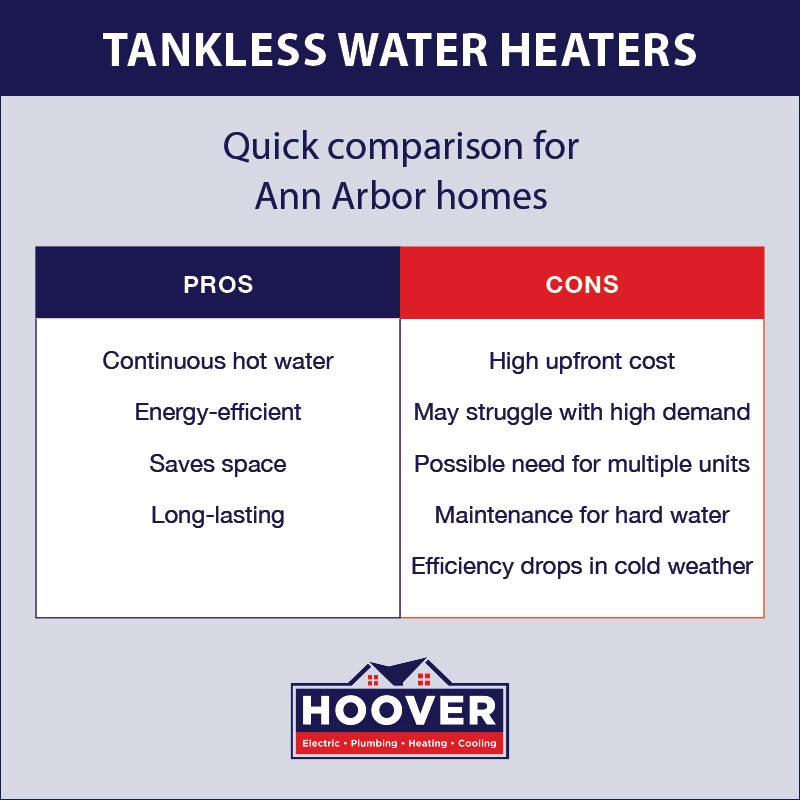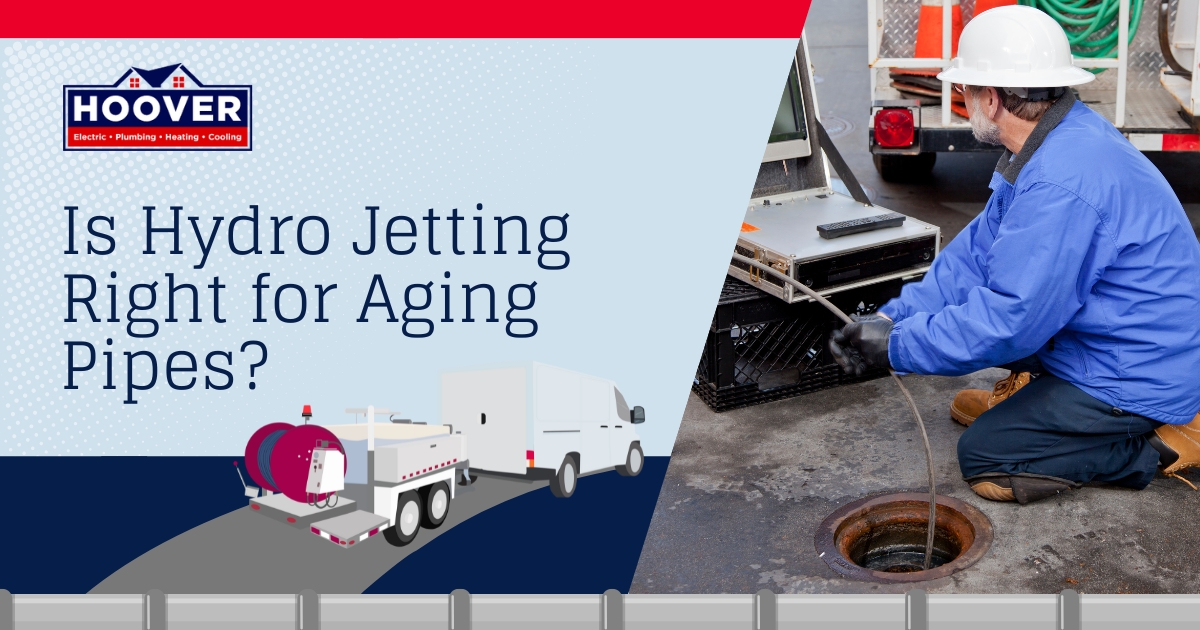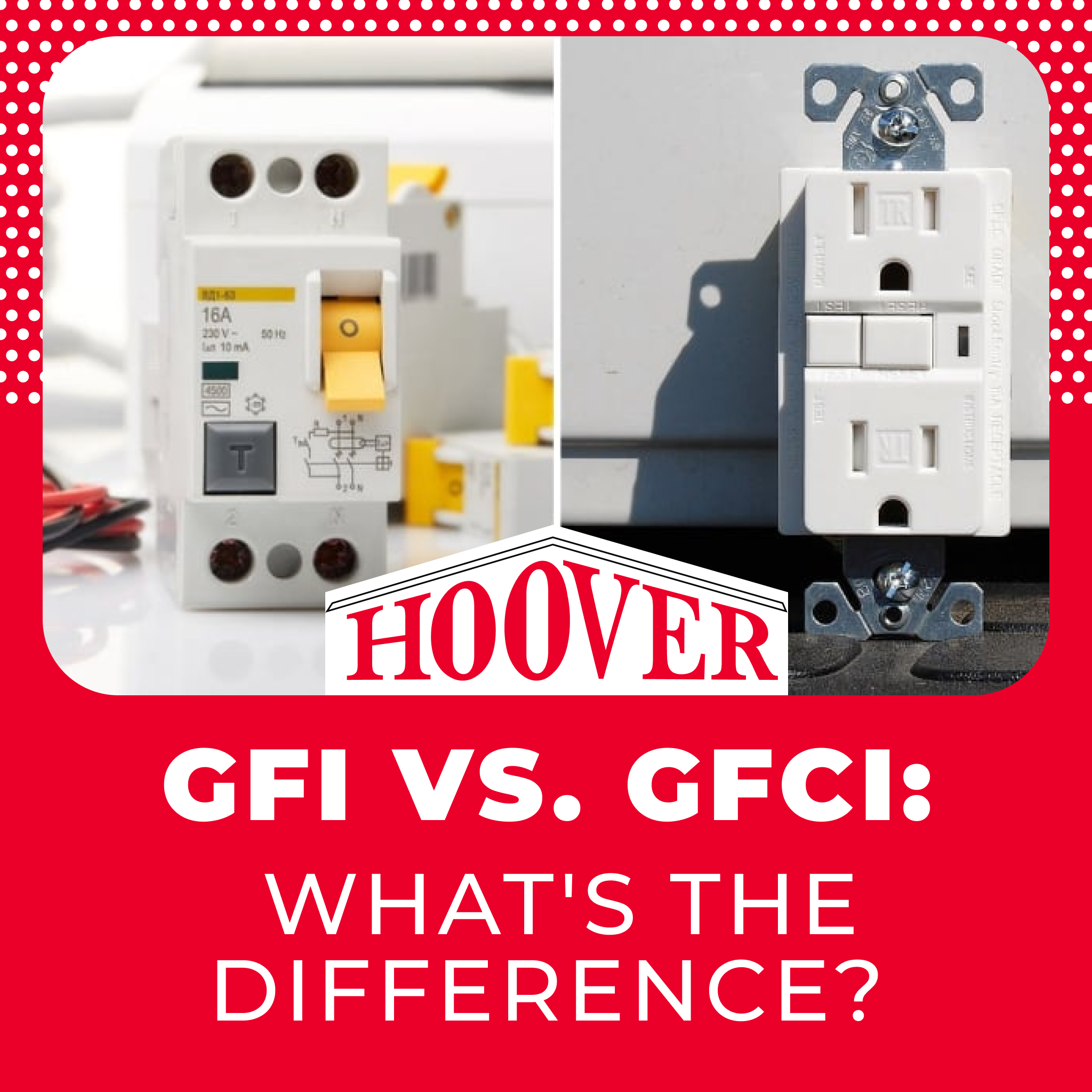
Efficient and reliable home systems and appliances are essential for homeowners. With a tankless water heater in your Ann Arbor home, you can say goodbye to suddenly freezing showers and similar inconveniences. Discover the advantages and considerations for tankless water heater installations and find out if it’s time to call Hoover about switching to a tankless system in your home.
What is a Tankless Water Heater?
A tankless water heater, also known as an instantaneous or demand-type water heater, is a freestanding unit that provides hot water to your home as needed. These units don’t continually heat water and rely on a storage tank to keep a reserve. Instead, tankless water heaters use a heat exchanger unit, with either an electric element or a gas burner, to warm water as it travels through a pipe whenever you turn on a hot water tap.
Advantages of Tankless Water Heaters in Ann Arbor
Tankless water heaters can provide numerous advantages for Ann Arbor homes. These benefits add up to create savings over the unit’s lifetime.

Continuous hot water supply
When a conventional unit depletes its hot water supply, you have to wait hours for it to heat and refill. In comparison, tankless water heater systems provide a continuous supply of hot water. With a properly sized unit, this is ideal for homes with consistent or high water demand who regularly run multiple water fixtures and appliances at a time.
Energy efficiency
Since tankless water heaters only heat water as needed, they offer reduced energy consumption compared to traditional water heaters that constantly maintain a hot water reservoir. Because they avoid the standby heat loss of conventional units, tankless models in households that use 41 gallons or less of hot water per day can expect energy savings between 24-34%, according to the U.S. Department of Energy. This translates to lower utility costs for Ann Arbor homes.
Low footprint
Without the need for a water tank, which often measures about 60 inches tall and 24 inches wide, tankless water heaters take up minimal space — relatively large units typically max out at 30 inches tall and 25 inches wide. Most models are so compact that you can utilize vertical space and mount them on a wall, freeing up valuable space in your home. Their compact size also allows for flexibility in your installation location, such as closer to hot water demand points to optimize delivery and energy efficiency.
Long lifespan
While conventional water heaters with modern technology have enhanced durability, these units don’t often last longer than 12 years. Tankless water heaters can last between 15 and 25 years with proper maintenance, and they generally require less frequent maintenance than conventional units.
Disadvantages of Tankless Water Heaters
Even with numerous advantages, tankless water heaters come with some considerations that may influence the net benefit for your home.
Upfront Investment
Tankless water heater installation and unit costs are a higher upfront investment than traditional water heaters. Electric units have simpler installation needs than gas heaters, but they may require electrical system upgrades. Gas tankless water heaters require access to natural gas lines and ventilation for installation but have more power than electrical heaters.
Limited flow rate
A properly-sized tankless water heater shouldn’t struggle to match your home’s hot water demand. Tankless units designed for higher demand can still offer superior efficiency, about 8-14%, over conventional units. In some cases, however, units may struggle to keep up with excessively high demand from multiple appliances and fixtures, resulting in water temperature fluctuations.
Large homes may need multiple units
As with multiple water outlets, large homes may demand a lot from an improperly sized tankless water heater. In addition to temperature fluctuations, large homes may experience extended wait times for hot water to arrive at outlets far from a single tankless unit. Although it adds to the upfront cost, homeowners can remedy this by installing multiple tankless units or point-of-use tankless heaters for one or two appliances or outlets.
Hard water challenges
Ann Arbor’s natural water supply has a high level of hardness. Although the city softens its water, tankless water heaters may be susceptible to scale buildup in the unit. Regular maintenance and a water softener system can offset these effects, but scale buildup can otherwise deteriorate components and decrease efficiency.
Cold climate
Freezing weather can affect the performance of a tankless water heater. In addition to potentially longer wait times for hot water, cold weather can reduce efficiency due to higher energy requirements to warm incoming cold water. While cold snaps are less common, Ann Arbor winters are still relatively cold and as such require proper maintenance and insulation measures to avoid freezing and damaging tankless water heater components.
Is a Tankless Water Heater Right for Your Ann Arbor Home?
Deciding whether a tankless water heater is right for your home depends on several factors:
- Home size and usage: Tankless water heaters are often a cost-effective solution for small homes with relatively low hot water usage. If you live in a large home or have high water demands, consider the cost benefits of having multiple units to optimize hot water availability.
- Climate: Ann Arbor’s cold winters mean your tankless unit should be capable of handling low temperatures efficiently.
- Fuel type: Gas line and electrical panel upgrades can add to the overall installation cost. Research your home’s system to verify compatibility with your unit or the cost to upgrade.
- Budget: Weigh the upfront cost against potential long-term savings on energy bills, maintenance, and replacements. Research financing options to accommodate your budget.
- Rebates and incentives: Ann Arbor and other Michigan homeowners may be eligible for rebates and incentives through programs such as Michigan Saves, DTE Energy, Consumers Energy, and federal tax credits. These programs can offset some cost of upgrading to energy-efficient water heaters.
Tankless Water Heater Installation and Maintenance in Ann Arbor
Professional tankless water heater installation for Ann Arbor homes ensures proper setup and efficiency. A licensed technician can thoroughly assess your home and consider its needs in relation to capacity, fueling, local climate, and other factors. They’ll provide a customized plan that details any required electrical panel or gas line modifications, applicable codes and permits, and unit sizing.
Regular maintenance helps keep your tankless water heater in good condition. Annual inspections, descaling, and other tankless water heater maintenance services can optimize efficiency and protect your investment. Refer to your owner’s manual or technician’s recommendations for maintenance between professional services, such as changing filters and keeping the unit clean of dust and debris. Schedule tankless water heater repair services promptly if you notice concerning changes in your water heater’s performance.
Hoover is Here to Help with Tank and Tankless Water Heaters in Michigan!
Serving Ann Arbor, Troy, Clinton Township, and other Michigan areas for over 40 years, Hoover Electric, Plumbing, Heating, and Cooling has a team of pros happy to help you consider the right tankless water heater option for your home. We also provide finance options, VIP maintenance plans, and other advantages to our customers — contact us or book online to schedule a free estimate and set up your service.
Frequently Asked Questions
How long does a typical tankless water heater installation take?
Installation timelines can vary depending on the needs of your home and the complexity of the installation, but most are complete in under a day.
Will a tankless water heater work if the power goes out?
A power outage prevents the function of the ignition system and control panel in both electric and gas tankless water heaters. Areas prone to power outages may consider a generator system to ensure hot water during extended interruptions in electricity.


